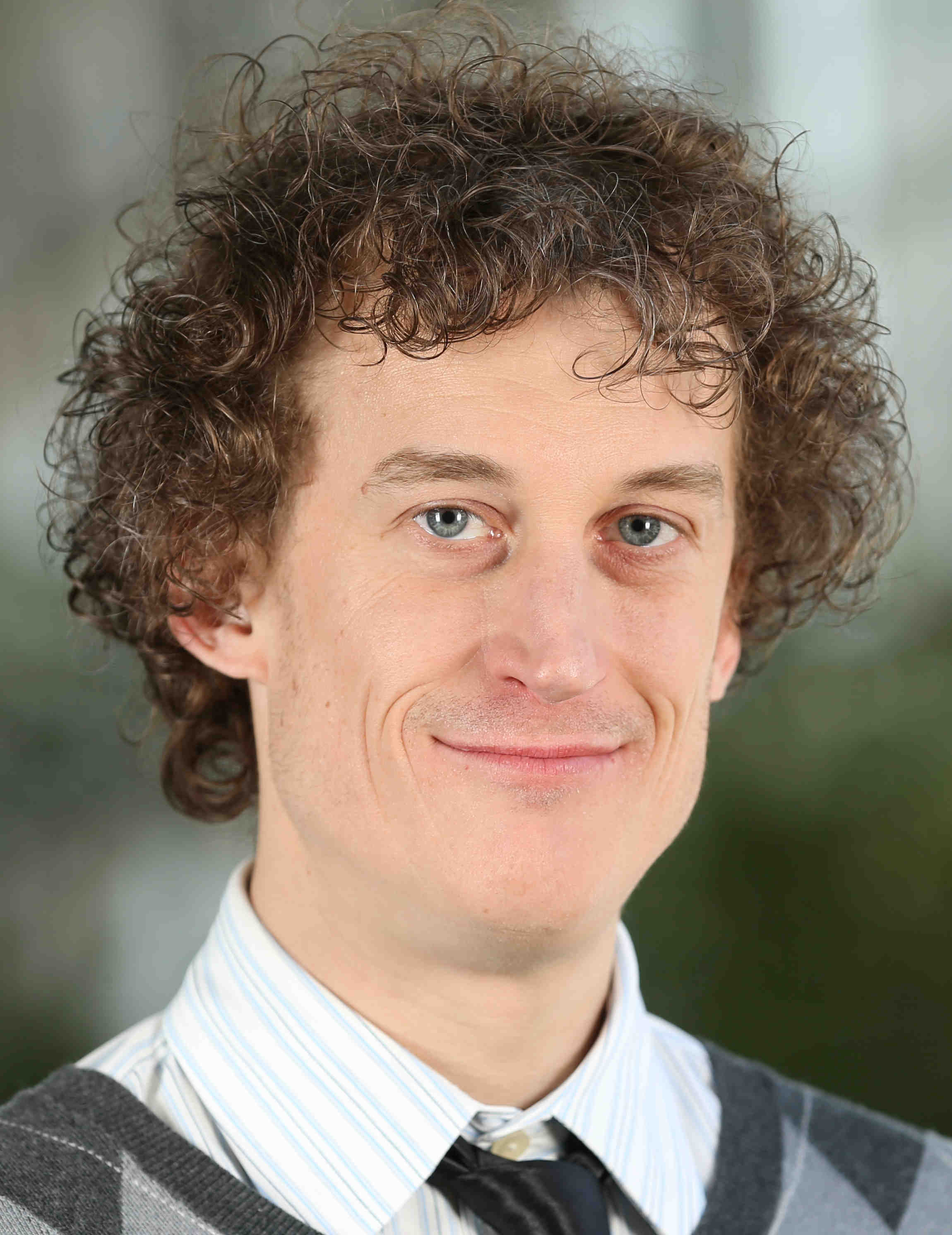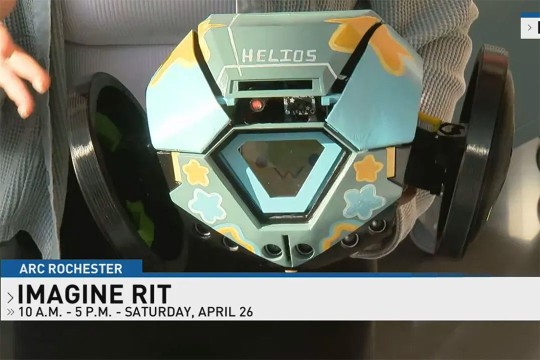Ph.D. student receives prestigious Microsoft Research grant for diversity in computing
Larwan Berke is one of 11 best research students in North America selected for award
Larwan Berke, a computing and information sciences Ph.D. student at Rochester Institute of Technology, was one of only 11 outstanding doctoral students selected to receive the 2019 Microsoft Research Dissertation Grant.
Each dissertation grant provides up to $25,000 in funding to doctoral students who are underrepresented in the field of computing. The funding will help students at North American universities complete research as part of their doctoral thesis work and aims to increase the pipeline of diverse talent receiving advanced degrees in computing-related fields.
 Larwan Berke, an RIT Ph.D. student, was awarded the 2019 Microsoft Dissertation Grant for his work that uses automatic speech recognition as a captioning tool to enable greater accessibility for users who are deaf or hard-of-hearing.
Larwan Berke, an RIT Ph.D. student, was awarded the 2019 Microsoft Dissertation Grant for his work that uses automatic speech recognition as a captioning tool to enable greater accessibility for users who are deaf or hard-of-hearing.Microsoft Research reviewed more than 200 proposals for students and awarded 11 grants.
“All 11 of these students are doing fascinating research and we’re thrilled to support these rising computing stars in ways that will truly help them advance their work,” said Meredith Ringel Morris, principal researcher and research manager at Microsoft Research, in a statement.
“This is a big honor for me and I am very thrilled to receive the support from Microsoft to push me to reach the finish line for my dissertation,” said Berke, who is from Fremont, Calif.
Inspired by his own experiences as a person who is deaf, Berke is working to improve the usability of captions produced by automatic speech recognition (ASR) for people who are deaf or hard-of-hearing. Berke explained that ASR technology is improving and may someday become a viable method for transcribing audio input in real-time. However, current ASR is imperfect.
Berke’s research explores adding markups to the captioning, so that deaf and hard-of-hearing viewers are able to discern when the ASR may be erroneous, by utilizing the confidence values in the ASR output. He completed his proposal defense in fall 2018 and is advised by Professor Matt Huenerfauth.
“My goal is to empower the deaf or hard-of-hearing individual with greater autonomy in scenarios, such as one-on-one meetings with hearing people when in-person interpreters are not available,” said Berke.
The funding will cover the cost of a Microsoft Surface laptop and study participant fees for an experiment to evaluate methods of representing potential errors in ASR captions. The funding will also allow Berke to pay for two undergraduate research assistants.
“This will give me an opportunity to mentor them and hopefully push them toward advanced degrees in computing,” Berke said.
In addition to the funding, grant recipients will travel to attend the Ph.D. Summit—a two-day workshop held in Redmond, Washington, in the fall. Grant recipients can present their research, meet with Microsoft researchers in their research area and receive career coaching. The winners of the Microsoft Research Ph.D. Fellowship, including RIT student Danielle Gonzalez, will also be in attendance.
Other students selected for the 2019 grant are from University of California, San Diego; Princeton University; University of Michigan, Ann Arbor; Carnegie Mellon University; University of Southern California; Stanford University; and University of South Florida.
This is the third year Microsoft Research has offered this research funding opportunity for doctoral students who are underrepresented in the field of computing, which include those who self-identify as a woman, African American, Black, Hispanic, Latinx, American Indian, Alaska Native, Native Hawaiian, Pacific Islander and/or people with disabilities.












